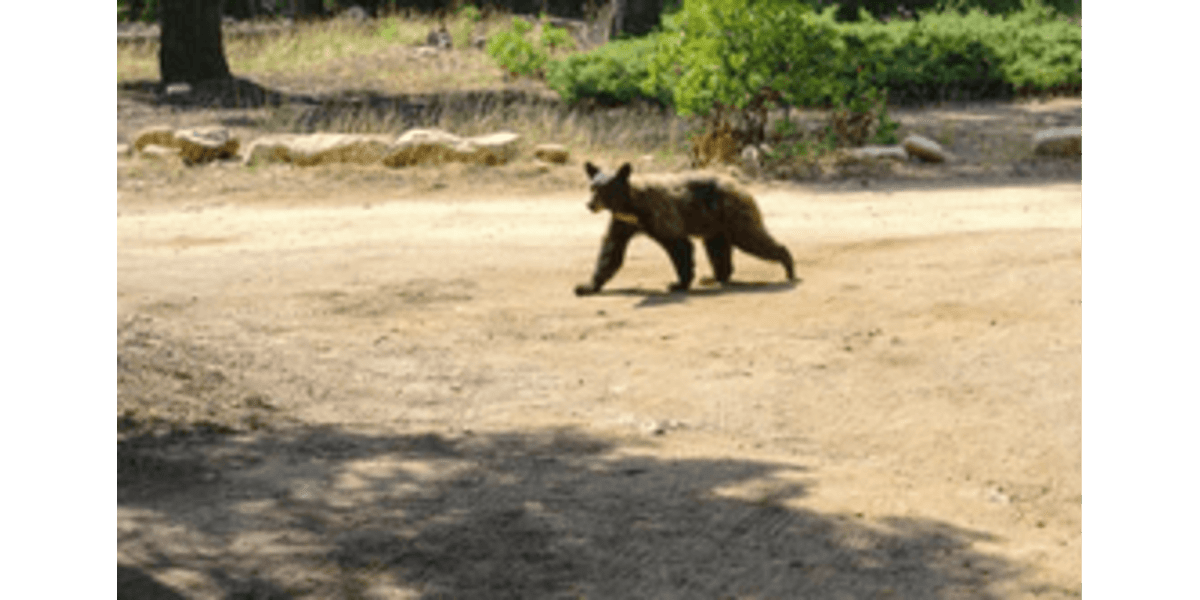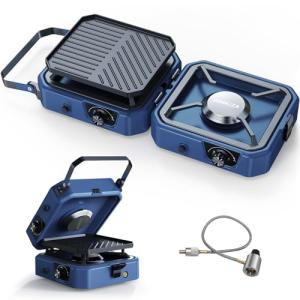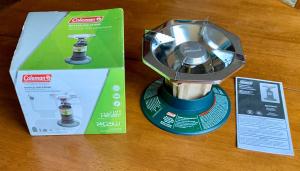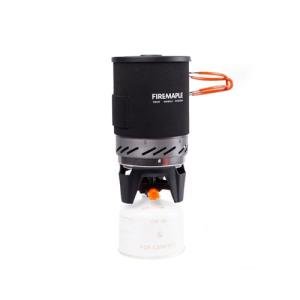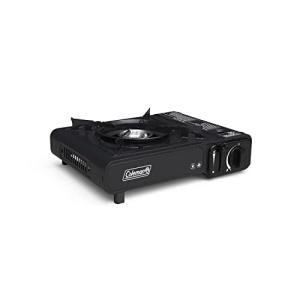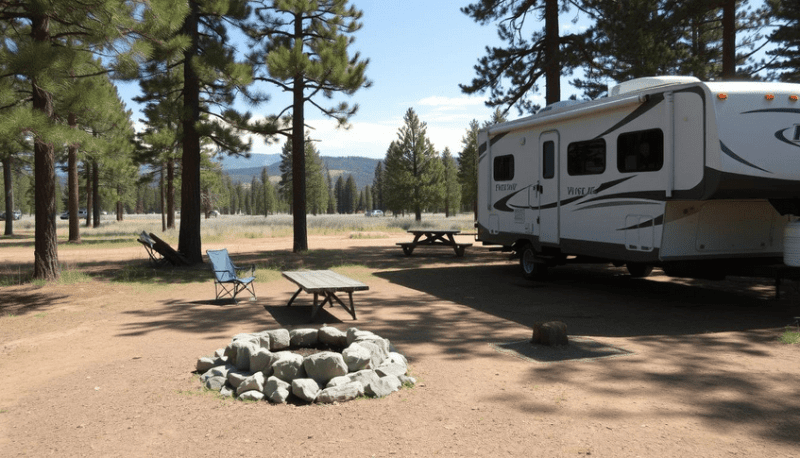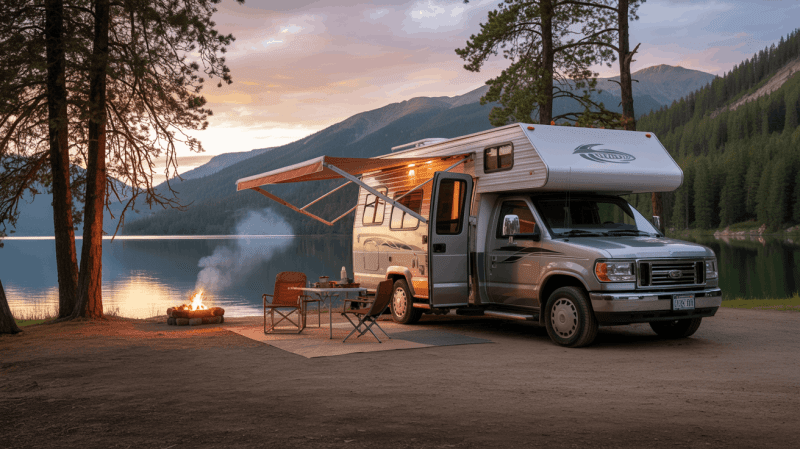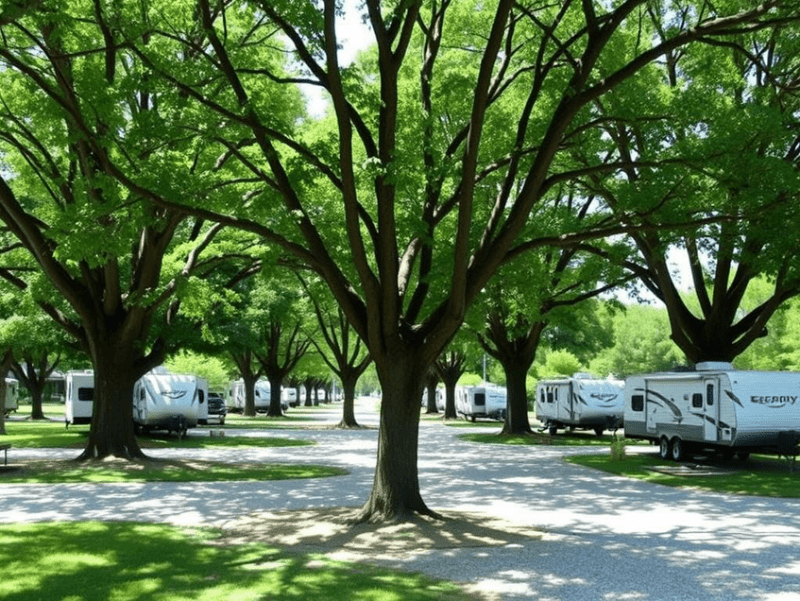Camping in bear country can be a thrilling experience, but it does require extra caution. Knowing how to deal with bears visiting your campsite can significantly enhance your safety and enjoyment. By understanding bear behavior and setting up a bear-safe campsite, campers can minimize risks and protect both themselves and the wildlife.

Preparation is key to having a safe camping experience. Simple strategies, like keeping food stored properly and using bear deterrents, can prevent unwanted encounters. Being informed allows campers to enjoy the beauty of nature while respecting the animals that inhabit it.
Staying alert and adopting active measures when camping can make all the difference. This blog post will cover practical tips and strategies that every camper should know to ensure a bear-safe outing.
Key Takeaways
- Understanding bear behavior helps in preventing encounters.
- A well-prepared campsite can deter bears from coming close.
- Knowing how to respond during an encounter is crucial for safety.
Understanding Bear Behavior
Bears are curious animals that often search for food. Knowing how different types of bears behave can help a camper stay safe. Identifying signs of bear activity can also prevent surprise encounters.
Types of Bears in Camping Areas
There are several bear species campers might encounter, each with unique characteristics.
-
Black Bears: Common in North America, these bears are usually shy. They weigh between 100 to 600 pounds and are often found near forests and mountains.
-
Grizzly Bears: These bears can also be found in North America. Larger than black bears, grizzlies weigh between 400 to 1,500 pounds. They can be more aggressive, especially when protecting cubs.
-
Polar Bears: Found in Arctic regions, they primarily hunt seals. They are less likely to be encountered at typical campsites but pose an active threat if nearby.
Understanding these types helps campers identify risks and act accordingly.
Common Bear Encounters and Behaviors
Bears exhibit behaviors mainly driven by their need for food. These can lead to various encounters, often due to curiosity or attractants.
Bears may approach campsites due to:
-
Food Odors: Leftover food, cooking scents, and garbage can attract bears.
-
Curiosity: Bears are naturally inquisitive. A tent or campsite's presence can pique their interest.
Many bear encounters are non-aggressive. However, it is essential for campers to stay alert and recognize bear behavior to avoid dangerous interactions.
Signs of Bear Activity
Recognizing signs of bear activity is crucial when camping. Campers should look for:
-
Bear Scat: This is a clear indicator of bear presence. Scat can be dark, and moist, and may contain remnants of food.
-
Tracks: Bear footprints are usually large and can help determine the species and size. Black bear tracks are round, while grizzly tracks have a more oval shape.
-
Scratches on Trees: Marks on trees may indicate where bears have been marking territory or searching for food.
Being aware of these signs can help a camper take precautions and avoid potential conflicts with bears.
Preparing for Bear Country Camping

When camping in bear country, it is essential to be well-prepared. The right gear and safety essentials can help prevent encounters and ensure a safe experience in the wilderness.
Choosing the Right Gear
Selecting appropriate gear is crucial for camping in bear country. First, consider a bear canister. This sturdy container keeps food secure and away from bears. It's designed to be bear-resistant and is a must-have when camping.
Next, use odor-proof bags for storing food and toiletries. These help mask scents that attract bears. Store these items inside bear canisters or hung from trees, away from the campsite.
Another effective tool is a bear fence. This lightweight, portable electric fence creates a barrier that can deter bears without harming them. Setting up this fence around the campsite helps create a safe zone while camping.
Bear Safety Essentials
Bringing bear spray is a top priority. It can deter a bear if approached, providing a critical defense tool. Ensure it is easily accessible in a holster or side pocket.
Camping gear should include a first aid kit and a whistle for emergencies. A sturdy tent, preferably in neutral colors, will also help blend into the surroundings. Bright colors can attract attention.
Study basic bear behavior and safety protocols before heading out. Knowing when to use bear spray and how to act during an encounter can make a significant difference. Prepare properly to enjoy the beauty of nature while staying safe.
Setting Up a Bear-Safe Campsite

Creating a bear-safe campsite requires careful planning and attention to detail. Proper food storage, cooking area management, and sleeping arrangements can help keep bears away from camp.
Securing Food and Toiletries
Bears are attracted to food and scented items. To prevent unwanted visitors, store food in bear-resistant containers. These containers should be sealed tightly and kept away from the sleeping area. If bear-resistant containers aren’t available, use a bear hang.
A bear hang involves suspending food 10 feet off the ground and at least 4 feet away from tree trunks. It’s also important to secure toiletries, as their scents can attract bears. Store items like toothpaste and soap in the same bear-safe containers or use odor-proof bags. Keep all food and scented items away from tents.
Creating a Safe Cooking Area
Location matters when cooking. Set up the cooking area at least 200 feet away from sleeping areas. This distance helps to minimize smells that might attract bears. Choose a flat, open spot for cooking to prevent accidents.
Use a portable stove instead of an open fire when possible. This method reduces food odors and prevents leftovers from falling into the fire. After cooking, clean all utensils and equipment thoroughly. Dispose of scraps in bear-resistant trash bags. Remember to never leave food unattended while preparing it.
Sleeping Area Best Practices
Choosing the right location for sleeping is crucial. Avoid setting up tents near berry bushes or known bear paths. Ideally, place tents on higher ground and set upwind from the cooking area. This arrangement limits the chance of bears smelling food.
Inside the tent, keep all food and scented items stored away. It is best to use personal odor-proof bags for snacks. If a bear approaches, remaining calm is important. Making loud noises may help to deter them. Always follow safety guidelines if a bear is sighted nearby.
Active Bear Deterrence Strategies

Taking proactive steps to keep bears away from campsites can significantly lower the chances of an encounter. Effective noise-making and the use of specific deterrents are two key methods for maintaining safety in bear country.
How to Make Noise Effectively
Making noise is a simple yet effective way to deter bears. It can alert them to human presence, making them less likely to approach.
- Talking: Speaking in a firm and calm voice can carry over distances and let bears know humans are around.
- Clapping: A couple of loud claps can also do the trick.
- Music: While bears may not associate music with people, having a radio on a talk station can be beneficial.
Essentially, the goal is to make consistent sounds that reach nearby areas. This can be particularly useful in dense woods where sightlines are limited. Establishing noise routines can help prepare campers and create a safer environment.
Using Bear Bells and Deterrents
Bear bells are a popular tool for hikers and campers. They can be attached to backpacks and emit a gentle ringing sound while moving. This sound helps to alert bears of human presence.
- Functionality: The sound is soft enough not to be intrusive to people but can be heard by nearby bears.
- Limitations: While bear bells are effective, they should not be relied on alone.
Using bear spray is another critical part of bear safety. It should always be accessible and stored in an easy-to-reach location. If a bear approaches aggressively, bear spray can be the most effective deterrent. It is crucial to know how to use it properly to ensure safety in threatening situations.
Setting up your campsite according to the "bearmuda triangle" can increase effectiveness. This involves placing food storage, cooking areas, and sleeping quarters in a way that minimizes smells reaching sleeping areas.
Responding to a Bear Encounter

In the event of a bear encounter, it is crucial to remain calm and take appropriate actions. Understanding how to assess the situation, use bear spray, and know when to back away can help ensure safety.
Stay Calm and Assess the Situation
The first step when encountering a bear is to stay calm. Panic can lead to poor decisions. Observing the bear's behavior is essential.
- Look for Signs: Check if the bear is alone or with cubs. A bear with cubs is more protective.
- Distance Matters: Determine how far you are from the bear. If it’s far away, you may not need to act immediately.
- Bear’s Focus: Is the bear aware of your presence? If it seems indifferent, you may just need to wait.
Remaining still while assessing will help in making the right choice.
Using Bear Spray Properly
Bear spray can be an effective deterrent if a bear approaches. It is crucial to know how to use it correctly.
- Keep Within Reach: Always carry bear spray where it’s easily accessible, not in a backpack.
- Check Expiration: Before heading out, ensure the spray is not expired and is fully charged.
- Know the Technique: If a bear gets too close, remove the safety clip and aim slightly downward. Spray in a short burst when the bear is within 20-30 feet.
Bear spray should create a cloud between you and the bear, giving you a chance to escape safely.
When to Back Away Slowly
Backing away slowly is key in some encounters. It is essential to recognize when to do this.
- Bear Not Aggressive: If the bear does not approach aggressively, backing away is a safe option.
- Stay Together: If in a group, stay close together. This shows strength and may deter the bear.
- Avoid Direct Eye Contact: Back away while keeping the bear in sight, but do not stare directly at it.
Moving slowly helps prevent triggering a chase response. It is important not to run, as this can provoke the bear to chase.
Frequently Asked Questions
Keeping bears away from a campsite requires understanding bear behavior and proper precautions. This section addresses common questions campers may have about dealing with bears effectively.
What should I do if a bear approaches my campsite?
If a bear approaches, stay calm and do not run. Make loud noises to alert the bear. Wave your arms to appear larger. If the bear does not leave, try to back away slowly while continuing to make noise.
How can I ensure my tent is safe from bears at night?
To keep a tent safe, pitch it away from food areas and known bear paths. Use bear-resistant gear when possible. Sleep with food stored securely away from the tent in a bear-safe manner.
What are effective methods for scaring off bears near my camping area?
Effective methods include making loud noises, using bear bells, or talking in a firm voice. Some campers find that throwing small stones near the bear can encourage it to leave. Never approach or provoke the bear while trying to scare it off.
What safety measures should I take when camping in bear country?
Camping in bear country requires specific safety measures. Store all food in bear-proof containers. Keep a clean campsite by disposing of trash properly. Avoid cooking in or near sleeping areas.
How do I properly store food to prevent attracting bears at my campsite?
Food should be stored in bear-resistant containers or hung from a tree at least 10 feet off the ground. Never leave food unattended. Dispose of any food scraps immediately in bear-proof trash bins.
What is the recommended action if I encounter a bear while camping?
If a bear is encountered, remain calm and evaluate the situation. Do not approach the bear. If it does not leave, back away slowly while speaking loudly and firmly. If the bear charges, stand your ground and prepare to defend yourself.
DISCLAIMER
This document is provided for general information purposes only and should not be relied upon as providing legal advice, technical, or specific operational guidance to the reader, whether as to the practices described in the document or the applicable legal requirements and regulations. bestcampingdeals.com expressly disclaims any responsibility for liability arising from or related to the use or misuse of any information in this document.
